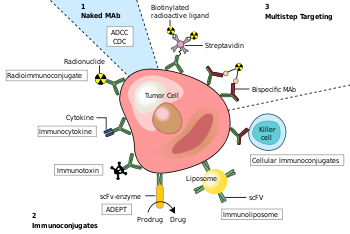
Immunomic Therapeutics Inc.(ITI), a privately held, Maryland-based biotechnology company, and Trianni, a privately held San Francisco-based company, have entered into a license agreement for The Trianni Mouse for use in the discovery of therapeutic antibodies
“We look forward to working with Trianni to develop new solutions for cancer patients,” noted Dr. Teri Heiland, vice president of research and development for Immunomic Therapeutics. “We are hopeful that combining our investigational LAMP-Vax approach, which utilizes the body’s natural biochemistry to help fight cancer, with Trianni’s best-in-class monoclonal human antibody discovery platform, will result in new solutions for hard to treat cancer types.”
"Trianni is pleased to license The Trianni Mouse to ITI," stated Dr. David Meininger, Trianni's chief business officer, "We believe that the unparalleled human antibody repertoire afforded by The Trianni Mouse will yield successful new solutions for the treatment of cancer when combined with ITI's investigational technology."
ITI’s investigational LAMP-Vax platform is thought to work by encoding the Lysosomal Associated Membrane Protein, an endogenous protein in humans. In this way, ITI’s vaccines (DNA or RNA) have the potential to utilize the body’s natural biochemistry to develop a broad immune response including antibody production, cytokine release and critical immunological memory. This approach could put LAMP-Vax technology at the crossroads of immunotherapies in a number of illnesses, including cancer, allergy and infectious diseases. LAMP is currently being employed in Phase II clinical trials as a cancer immunotherapy. ITI is also collaborating with academic centers and biotechnology companies to study the use of LAMP in cancer types of high mortality, including cases where there are limited treatment options like glioblastoma and acute myeloid leukemia. ITI believes that these early clinical studies may provide a proof of concept for LAMP-Vax therapy in cancer, and if successful, set the stage for future studies, including combinations in these tumor types and others. Preclinical data is currently being developed to explore whether LAMP nucleic acid constructs may amplify and activate the immune response in highly immunogenic tumour types and be used to create immune responses to tumor types that otherwise do not provoke an immune response.
Immunomic, trianni mouse, therapeutic antibodies